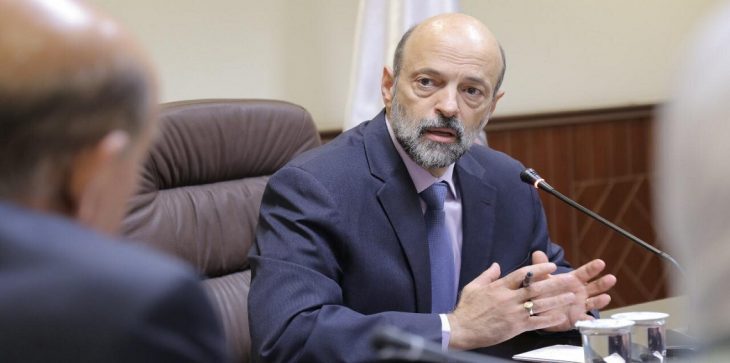

Tax Law for the next ordinary session
A fair path between tax and improved services
Fearing that the poor would implement the rich agenda in their opposition to the new law
AlAnbat- Omar Kallab
At the moment when one of the wealthy people in the capital sits on his seat, smoking his luxury cigar, objecting to the tax law, a government team was subjected to a popular bombardment in a poor governorate whose residents are not subject to the income tax law that is the subject of the sharp national debate today. That is a new miracle in the series of connected wonders, as if Alice the heroine of the famous story is in Jordan and not in a European country. According to a semi-official source, the Income Tax Department has no branch in the southern province.
The tax law has been faced by popular activities that are not subject to the law mainly by a strong rejection, revealing the extent of the gap between the government and the popular street that is ready to reject any government decision, even if it does not affect it. According to Deputy Safaa al-Momani in a statement revealing the extent of the gap and lack of confidence, He entered into three hundred dinars a month "the law applies to all those who earn up to three hundred JD per month” before being sworn into the office of the Minister of Public Works and Housing. Before that, a citizen from Zarqa province cursed the law that would take his live meat, although his monthly salary is not taxable.
The government opened a popular dialogue in the provinces to explain the ambiguous law of large sectors of the Jordanian street, which quickly rejected the law without access to it. These sectors are satisfied with the comments scattered by the social networking sites in cyberspace and soon formed a popular mood. Yet the poor are addressing their defense in the government only after this class has succeeded in investing little trust between the citizen and the government.
The Minister of Political and Parliamentary Affairs, in turn, does not deny the difficulty of the comprehensive national dialogue in the absence of a partisan political system, and the man bitterly speaks of wasting the opportunity of producing a political elite representative of the Jordanian street instead of the shuttle tours of the ministers in the provinces that must be visited by government teams to discuss the general situation in the province and not explain the law. It is supposed to be a comprehensive discussion in the political and parliamentary framework, but the weakness of political representation produced this situation, which must be exceeded by the national moment quickly according to a comprehensive political program, and the minister was listening to the state of anger transferred by the Jordanian construction contractors Engineer Ahmed al-Yaqoub, on the law and not to hold a sectoral dialogue before pushing it to the public.
Prime Minister Dr. Omar al-Razzaz does not deny the difficulty of the national situation facing his government in the early stages, where it is required today to pass a problematic law in its nature and composition instead of the government discussing the developments of the service and improving and raising the standards of living. In special statements to AlAnbat, Dr. Razzaz said that he does not wish this to be the beginning of his government, but he will not accept the spread of crises or circumvent them to buy time. The stage requires exposing people in all circumstances, and he declares that the law should be in effect since next year - 2019. In contrast, the Kingdom's credit rating will fall to levels, the loans rate will be high and reach 8-9%. In return, speeding up the adoption of the law will keep the interest rate within 3%, thus providing the government with a financial margin to improve public services.
Al-Razzaz confirmed to AlAnbat that the government will push the law to the House of Representatives in the next ordinary session as a maximum, hoping that the law will have the approval of the National Assembly chambers of deputies and the public and that the citizen understands the law by reading it accurately. Al-Razzaz does not deny that the law will be a prelude to government measures which will ease the burden on the citizen through reviewing the entire tax base, including fees, allowances and differences that burdened the Jordanian citizen.
Until the moment the law is in the Department of National Dialogue and the government is still picking up the messages of the community, coming to them without denying the observations of methodology and professionalism. Experts have noted notes worthy of follow-up to the law, notably the absence of the share of health, education and housing on the table of exemptions and a decline in the level of public services that require money. He continued to AlAbnbat with whom shall we start ? With the service and improving it or with the tax and passing its law, he is crucial that it will start with good service and law together.
Al-Razzaz does not deny the delay of the official contract on the dissemination of tax culture and the need to devote this culture to deepen the concept of citizenship, but is determined to walk in this path to the right of the taxpayer in a respectable service and the right of the state to collect a fair income tax taking into account the progressive tax and protection of middle and poor classes.
Translated by: Yasmeen AbuBaker